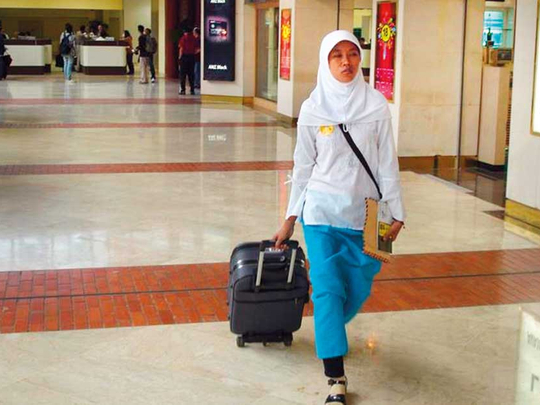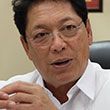
Dubai: The deployment of household service workers (HSWs) from the Philippines to the UAE will resume at the end of the month, the Ministry of Human Resources and Emiratisation (MOHRE) and Philippine Department of Labour and Employment (DOLE) announced on Tuesday.
MOHRE tweeted: “Concluding a series of meetings held in the Philippines between a delegate from #MOHRE & senior Filipino officials, it was announced that starting April, the UAE will import domestic workers from the Philippines through the officially authorised channels in both countries.”
DOLE also announced on Tuesday that the deployment of household service workers (HSWs) to the UAE will resume next month.
The deployment of Filipino domestic workers to the UAE was suspended in 2014, following a unified contract introduced by the UAE Ministry of Interior that led to the suspension of various embassies’ role in verifying and attesting contracts. According to Philippine domestic laws, labour agencies must verify and record all contracts of household service workers before deployment in order to ensure their protection. UAE and Philippine labour officials have conducted a series of bilateral talks the last few years to resolve the conflicting recruitment rules.
Deterrent to illegal recruitment
Silvestre Bello III, minister of DOLE, hailed the agreement as a milestone in the Philippine government’s efforts to further protect Filipino overseas workers.The Philippine government also reiterated its position to deploy the workers through the legal channel and the conversion of tourist visa to working visa is therefore not recommended since this may lead to illegal recruitment and trafficking in persons.
In a press statement, DOLE Undersecretary Claro Arellano, head of the Philippine delegation, said the sending of Filipino workers was decided during a two-day Joint Committee Meeting in Manila from Monday to Tuesday. The UAE delegation was headed by MOHRE undersecretary Saif Ahmed Alsuwaidi.
Arellano said the measure will now be covered by a Unified Employment Contract (UEC) that provides stringent measures to protect Filipino domestic workers.
Unified contract
Under the unified contract, both the employer and foreign recruitment agencies as well as the Philippine recruitment agencies are bound by joint and solidary liability should anything happen to the Filipino workers.
Arellano said in a statement: “We are grateful for the cooperation of our counterparts.” He also noted same provisions were in the standard employment contract being used in Kuwait.
Safety and well-being
The four-party contract, which becomes an addendum to the UAE-Philippines Memorandum of Understanding on Labour Cooperation with Annex Protocol on Domestic Workers, includes specific provisions to ensure the safety and well-being of Filipino household workers. These are:
1. The right of the domestic worker to take at least eight (8) continuous hours of sleep every night;
2. The right of the domestic worker to take a break that is paid, outside the residence of the employer at least one full day every week;
3. The right of the domestic worker to keep his/her passport or identification documents and the employer is not allowed to hold them;
4. The employer shall allow the domestic worker to have and use cellular phones and other communication devices and the employer is prohibited from confiscating them;
5. Opening of bank account under the name of the domestic worker for payment of salary; and
6. Allowing the domestic workers to cook her or his own food.
Conversion of visa
Another provision in the agreement is the conversion of tourist/visit visa to working visa. As agreed during the meeting, the Philippine Overseas Labour Office (POLO) will be notified when a visit visa is converted to an employment visa for a Filipino domestic worker.
Arellano noted the UAE will provide a modified UEC that will reflect the proposed addendum in the next joint committee meeting as well as during the discussion by the Technical Working Group on the electronic system and linkage. The UAE and Philippines both agreed that the Addendum will already be implemented for the immediate resumption of the deployment of domestic workers under manual process.
Ensuring protection of domestic workers
Speaking to Gulf News, Barney Almazar, director at the corporate-commercial department of Gulf Law and an expert on Filipino migration, said: “We have been wanting a system that does not lead to the exploitation of the marginalised sectors of the society. The primordial concern is the safety and wellbeing of our HSW, the most vulnerable sector of the overseas Filipino workers (OFWs). However, once the HSW has been deployed, the Philippine government has to rely on the host country for the protection of its citizens. With the facilitation of labour being limited through authorised channels, both UAE and Philippines governments are ensured to know who is working where, and that the rights of the HSW are upheld.”










